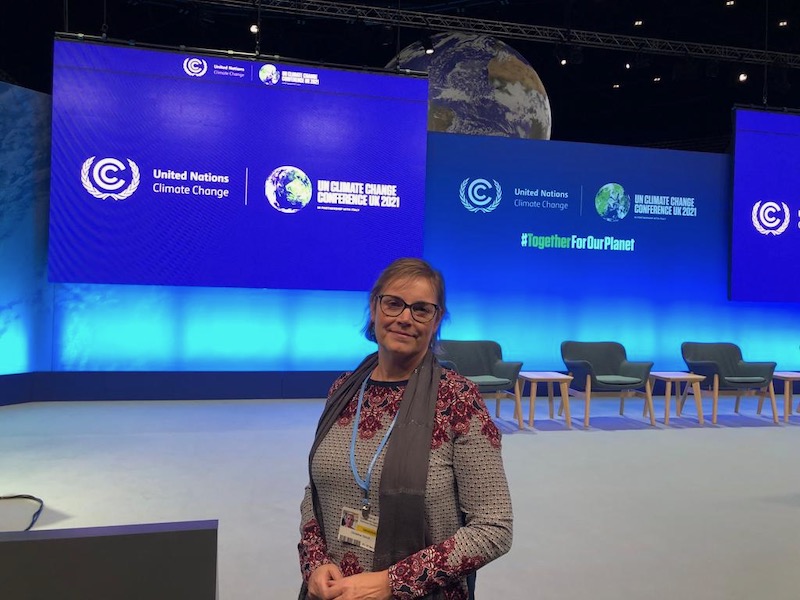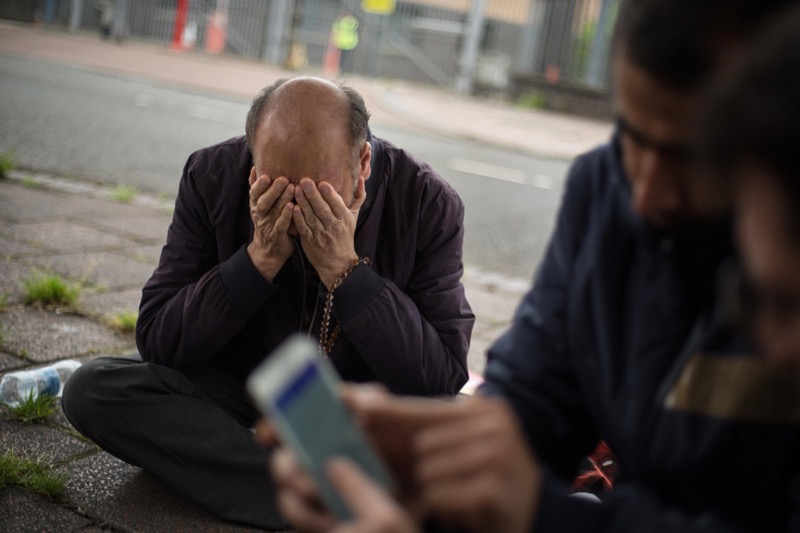According to a Guardian report, Mercy Baguma, 34, an asylum seeker from Uganda, was left destitute when her leave to remain expired and in extreme poverty when police discovered her dead next to a crying baby in a flat on Glasgow’s Southside on Saturday, 22 August 2020.
According to the BBC, her son was discovered crying and weakened after several days of malnutrition next to his mother.
One-year-old Adriel and the baby was taken to the hospital and discharged on Monday, 24 August, 2020, and he is now staying with his father.
Ejikemeuwa Eric Nnanna, Mercy Baguma's partner, described his one-year-old son Adriel's survival as a miracle after his mother Mercy was found dead in an apartment on 22 August, 2020, with police believing she died four days earlier, meaning one-year-old Adriel would have gone four days without food or drink.
Ejikemeuwa Eric Nnanna told the media that Adriel was born in Glasgow’s Queen Elizabeth University Hospital and was given the name Adriel after a Biblical figure. The meaning of the name Adriel is “God is my Help”, the faithful could argue that Adriel's miraculous survival is possibly God's help.
I’m sure that when Adriel grows up, he’ll question why his mother and he were left to die and what the society was doing to help them. I would specifically ask the readership to question as to what the church was doing.
I have more questions than answers about all this, and people may wish to reflect on and seek answers to these questions on their own time, as various people may respond differently to these questions.
I’m curious as to why mothers and babies are left hungry in the world's fifth-richest country, and why charities and volunteers are left to pick up the pieces. Does society have anything to say about them other than to label them as a burden on the system?
While anti-refugee groups present refugees as the key problem facing modern Britain and urge for the government to make every effort to address them, however, the fact is that people like Mercy Baguma have no safety net; they are left destitute and without resources, and they are humiliated and ridiculed by far-right discourse for being forced to seek assistance.
One could argue that a significant issue that arises from the conditions outlined above is the issue of human dignity for specific groups within the society; indeed, the concept of human dignity is a central theme of Catholic social thinking. This raises the bigger question of what it means to be human. This is the crux of the human rights debate. Being human has specific implications: human self-awareness and acts done to maintain human dignity are what gives humanity its unique meaning.
It’s worth noting that human self-awareness and human actions determine the interplay between the individual mind and language and the larger society. Most crucially, our human acts secure economic security, the right to education, the right to free association, and the right to free expression; and that establish an environment that protects expression and fosters courageous thought. When we reject efforts to safeguard human dignity, we forfeit the essence of what it means to be human, and when we waver in our commitment to the concept of human rights, we abandon our moral convictions. What follows is deception and foolishness, corruption and authoritarianism, as well as an endless succession of humanitarian catastrophes in the modern world.
In the case of Mercy Baguma, this is what happened. The government, policymakers, and a part of society rejected the efforts to safeguard human dignity for Mercy Baguma and her one-year-old son. History shows that painful realities, visible everywhere, always accompany a moral failure, and that’s what happened here in the case of Mercy Baguma and her son.
We must remember that human rights are shared values and that they are shared possession. When abuses against anyone are committed in any society, they jeopardise the dignity of humanity as a whole. In a similar vein, mankind will be able to achieve shared redemption only if the rights of each individual and the peoples of each region are preserved and cared for. When Mercy Baguma’s and her one-year-old son’s human dignity was violated, the dignity of the society in which she lived and of which I am a member was also violated.
It is worth noting that both the 1945 United Nations Charter and the 1948 Universal Declaration of Human Rights incorporated the concept of human dignity as a conceptual pillar. The great achievement of the Universal Declaration of Human Rights was to secure agreement on the use of dignity as a foundational value. I would argue that human dignity stems from the fact that made in the divine image.
For me, dignity is not something we can fundamentally lose or entirely detach ourselves from, because while we can claim to possess it, it is not something we discover or guarantee. Rather than that, I would say that dignity is based on a given gift and is something that may be renewed indefinitely by the same divine effort. While the state mechanism denied Mercy Baguma and her son of dignity, I would argue that the system could never entirely strip them of their dignity.
William Gomes is a British Bangladeshi freelance journalist and human rights activist based in York, North Yorkshire.



 Loading ...
Loading ...
What do you think?
You can post as a subscriber user ...
User comments (0)